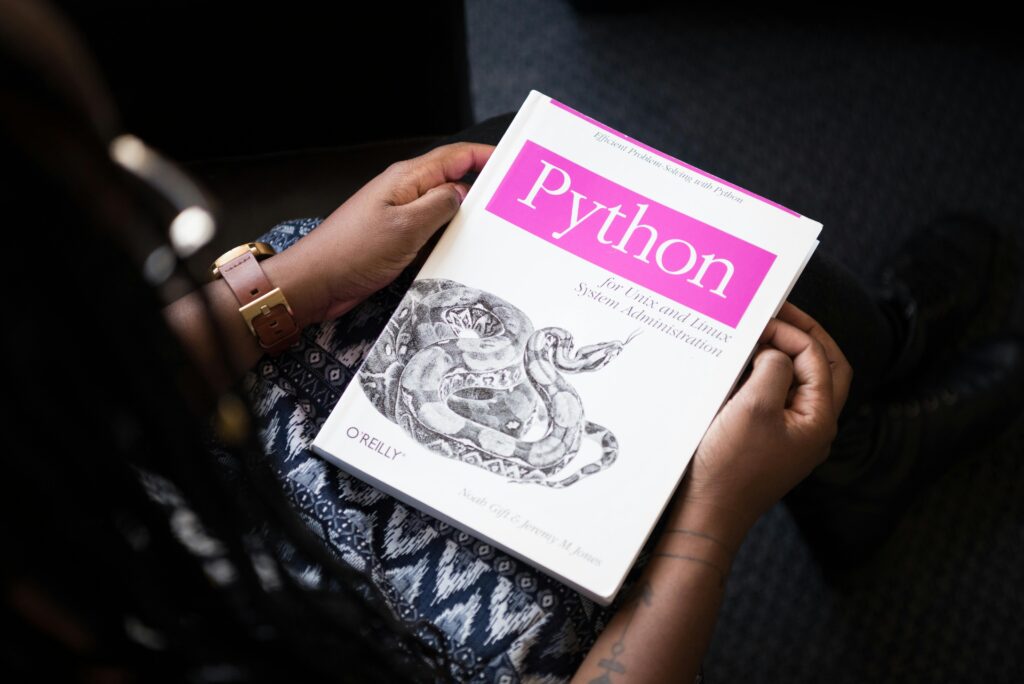4 places that LTA-tech recommends you to start with.
In our previous article we argued that the No.1 skill that will be in high-demand and will ensure job security in the future is the AI together with Python coding skills. Python matters because it is one of the most versatile, user-friendly, and widely adopted programming languages in the world. In addition, Python professionals widely use it for machine learning, data analysis, and AI development, allowing them to create advanced algorithms, streamline processes, and derive actionable insights from large datasets.
AI and Python are incredibly valuable skills in today’s job market! Here are four excellent resources where you can learn them for free:

1. Kaggle Learn
- Kaggle offers free, hands-on tutorials in Python and machine learning, with practical exercises in Jupyter notebooks.
- Focus on topics like Python basics, data visualization, and machine learning models.
- Link: https://www.kaggle.com/learn
2. Google’s Machine Learning Crash Course
- A beginner-friendly course that introduces machine learning concepts using TensorFlow.
- Includes video tutorials, interactive exercises, and real-world examples.
- Link: https://developers.google.com/machine-learning/crash-course
3. FreeCodeCamp
- FreeCodeCamp offers extensive tutorials on Python, data analysis, and AI through hands-on projects.
- Covers topics like Python basics, data structures, and using libraries such as NumPy and Pandas.
- Link: https://www.freecodecamp.org/learn/data-analysis-with-python/
4. Coursera (Audit Courses for Free)
- Many top universities offer Python and AI courses on Coursera. You can audit these courses for free, gaining access to videos and quizzes.
- Recommended courses: “Programming for Everybody (Python)” by the University of Michigan and “AI For Everyone” by Andrew Ng.
- Link: https://www.coursera.org/learn/ai-for-everyone
These platforms provide a solid foundation for learning Python and AI at no cost. Dive in and start exploring!
Yes thank you LTA, but how long will it take to me to learn?
The time required to learn Python and AI depends on your background, dedication, and the depth of knowledge you aim to achieve. Here’s a general guideline:

1. Learning Python (Basics to Intermediate):
- Timeframe: 4-8 weeks (10-15 hours/week).
- Focus on:
- Syntax and basic programming concepts (variables, loops, functions).
- Data structures (lists, dictionaries, sets).
- Libraries like NumPy, Pandas, and Matplotlib.
- Outcome: You’ll be able to write scripts, analyze data, and solve basic problems.
2. Learning AI and Machine Learning Basics:
- Timeframe: 8-12 weeks (10-15 hours/week).
- Focus on:
- Introduction to machine learning and AI concepts.
- Understanding algorithms like regression, classification, and clustering.
- Hands-on experience with libraries like Scikit-learn, TensorFlow, or PyTorch.
- Working on small projects like building a recommendation system or sentiment analyzer.
- Outcome: You’ll understand core concepts and apply AI tools to simple tasks.
3. Advanced AI (Deep Learning and Specializations):
- Timeframe: 3-6 months (10-15 hours/week).
- Focus on:
- Neural networks, computer vision, and natural language processing (NLP).
- Advanced projects like image recognition or chatbots.
- Deploying AI models in real-world applications.
- Outcome: You’ll have a deeper understanding and be prepared for more complex roles.

Tips for Learning Efficiently:
- Start Small: Focus on Python basics before diving into AI.
- Consistency is Key: Dedicate a few hours daily or weekly.
- Hands-On Practice: Build projects to reinforce what you learn.
- Leverage Communities: Join forums like Stack Overflow or Reddit communities for support.
With consistent effort, you can gain a solid foundation in 3-6 months and continue refining your skills with practice and advanced learning.
